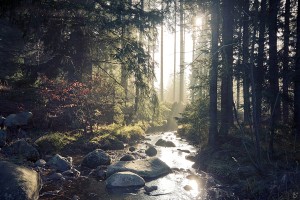
Rumi:
Soul receives from soul that knowledge, therefore not by book
nor from tongue.
If knowledge of mysteries come after emptiness of mind, that is
illumination of heart
Emulation:
The soul earns contentment not from knowledge but with wisdom
nor from hypocrisy
If information answers the disturbances of the mind
Then application thereof enlightens the heart
In many of Rumi’s famous poems one can find a great wealth of righteous knowledge that not only intends to give purpose to his poetic literature but to also give practical, beneficial advice to its readers. Collectively this piece describes two interconnected aspects of beauty that are found within human essence and likewise the absence of these characteristics causes individuals of a society to deviate from their pure human nature. The path of true righteousness is found when one submits themselves to the divine Creator in which they are retracing their body and soul to the initial instructions of God that had been placed upon the human being. This inevitably instills one with the ability to accept their own faults whilst simultaneously becoming obedient to religious law. These aspects are what Rumi defines as properties that successful, righteous individuals possess and therefore they are better enabled into rediscovering the true path of guidance as shown by God. Although the message presented is one of great virtue it is not yet complete as it entails that servants of the Most-Merciful will receive a reward for their sacrifices. Specifically they will be given spiritual ecstasy that will flow through their hearts in which will fill them with in-explainable happiness in this physical world and in the afterlife they will inhabit an unimaginable paradise. Alongside paradise the equivalent opposite, which is also known as hell, is a place of constant torment and punishment. The individuals who continue to linger in evil and cause their hearts to dwell in darkened, murky water will face a visible punishment in this materialistic world and also a physical consequence for their actions after death. Continuous balance of both reward and pain in this poem are parallel to that of the characteristics of good and evil. This entails that either result is with certainty present but it is not a fixed destination; therefore, an individual’s free will in the worldly life can in actuality change the outcome of their fate after death.
Rumi describes a general yet large understanding of the Islamic belief of the afterlife and it is by doing so that he impacts the reader into begin thinking for themselves. This is because he causing individuals to question the world around them in order to allow them to acknowledge the truth of this world: human beings are meant to be subservient to the Creator. If one is to become successful they must be willing to stand firm to their belief systems and must overcome the pressures that surround their social environment.





